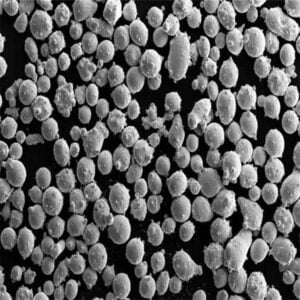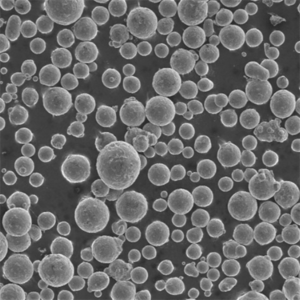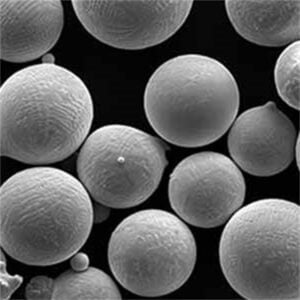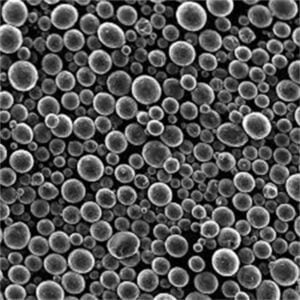High-Temperature Alloy Monel 400
Table of Contents
Introduction
In the world of advanced materials, where performance under extreme conditions is paramount, high-temperature alloys like Monel 400 have become the heroes of modern engineering. But what makes Monel 400 so special? Why is it favored in industries that demand durability, resistance, and strength? Buckle up as we dive into the fascinating world of this alloy and uncover the reasons behind its exceptional reputation.
What is Monel 400?
Monel 400 is a high-strength nickel-copper alloy known for its outstanding resistance to corrosion, particularly in marine environments. This alloy, often referred to as a “superalloy,” is a blend of nickel (63%) and copper (28-34%), with smaller amounts of iron, manganese, carbon, and silicon. Monel 400 stands out due to its impressive combination of properties, making it a go-to material in industries where other materials would falter.
Composition of High-Temperature Alloy Monel 400
When we talk about the composition of Monel 400, we’re essentially discussing the precise balance of elements that give this alloy its unique characteristics. Here’s a closer look at what makes up Monel 400:
| Element | Percentage Composition (%) |
|---|---|
| Nickel (Ni) | 63.0 min |
| Copper (Cu) | 28.0 – 34.0 |
| Iron (Fe) | 2.5 max |
| Manganese (Mn) | 2.0 max |
| Silicon (Si) | 0.5 max |
| Carbon (C) | 0.3 max |
| Sulfur (S) | 0.024 max |
This carefully controlled composition ensures that Monel 400 can withstand high temperatures and resist corrosion, particularly from acidic and alkaline environments. The high nickel content contributes to its thermal stability and resistance to oxidation, while the copper content enhances its resistance to corrosion from seawater and acidic solutions.
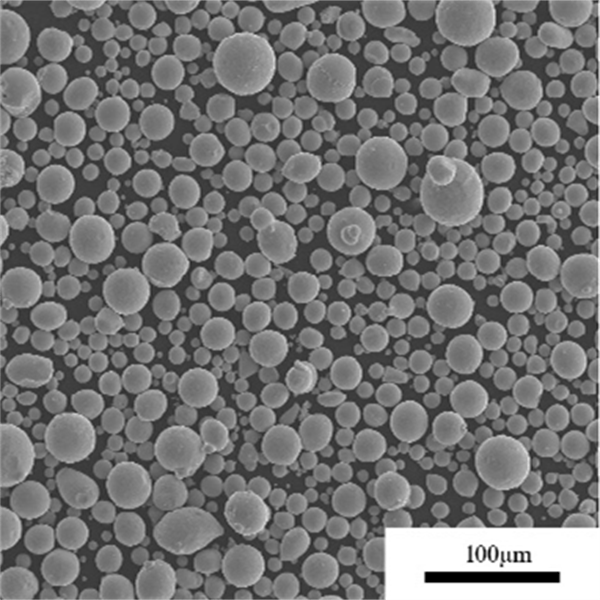
Manufacturing Process of Monel 400
Monel 400 is typically produced through a process that involves melting the raw materials in a vacuum or controlled atmosphere to prevent contamination. The alloy is then cast into ingots, which are further processed into the desired shapes and forms. Common methods include hot and cold working, as well as machining and welding. The ability to shape and form Monel 400 into various products without losing its properties is one of the reasons it’s so widely used across different industries.
Types and Grades of Monel 400
Monel 400 is available in various forms, from rods and sheets to powders and wires. Each form can be tailored to specific applications, ensuring that engineers have the right material for their needs.
Specific Metal Powder Models
Metal powders of Monel 400 are particularly useful in additive manufacturing and other applications where precise material control is essential. Below is a list of some specific Monel 400 metal powder models:
| Model Name | Description |
|---|---|
| Monel 400-P | High-purity Monel 400 powder suitable for 3D printing and powder metallurgy. Excellent flowability and particle size distribution for consistent results. |
| Monel 400-F | Fine-grained Monel 400 powder, optimized for coatings and surface treatments, providing superior corrosion resistance. |
| Monel 400-M | Medium-grain powder designed for sintering applications, ensuring high density and mechanical strength. |
| Monel 400-G | Gas-atomized powder with uniform spherical particles, ideal for thermal spraying and cladding applications. |
| Monel 400-C | Coarse powder suitable for cold spray techniques, providing excellent adhesion and bond strength on various substrates. |
| Monel 400-AP | Atomized powder specifically for additive manufacturing processes, such as laser sintering and binder jetting. |
| Monel 400-E | Electrolytic Monel 400 powder with high purity, used in electroplating and electroforming processes. |
| Monel 400-S | Spherical Monel 400 powder optimized for selective laser melting (SLM) and electron beam melting (EBM) techniques. |
| Monel 400-H | High-performance powder for hot isostatic pressing (HIP), offering excellent mechanical properties and isotropic behavior. |
| Monel 400-R | Recycled Monel 400 powder, providing a cost-effective option without compromising on quality, ideal for non-critical applications. |
Each of these powder models has been engineered to meet specific requirements in different industries, from aerospace to marine engineering, ensuring that Monel 400 remains a versatile material across a wide range of applications.
Monel 400 vs Other Nickel-Copper Alloys
When compared to other nickel-copper alloys, Monel 400 stands out for its unique balance of properties. For instance, while Monel K-500 shares many of the same corrosion-resistant qualities as Monel 400, K-500 has been precipitation-hardened to offer higher strength. On the other hand, Monel R-405 is a free-machining version of Monel 400, designed specifically for automated processes.
Properties and Characteristics of Monel 400
Monel 400’s popularity is not just a result of its composition; it’s also about the remarkable properties that emerge from this specific mix of elements.
Physical Properties
Monel 400 is known for its impressive physical properties, which include:
| Property | Value |
|---|---|
| Density | 8.80 g/cm³ |
| Melting Range | 1300°C – 1350°C |
| Electrical Resistivity | 0.510 µΩ·m at 20°C |
| Thermal Conductivity | 21.8 W/m·K at 20°C |
| Coefficient of Thermal Expansion | 13.9 µm/m·K (20-300°C) |
These physical properties make Monel 400 a highly desirable material in applications where thermal stability and resistance to expansion under heat are critical.
Mechanical Properties
Monel 400’s mechanical properties are equally impressive, contributing to its ability to perform under high-stress conditions:
| Property | Value |
|---|---|
| Tensile Strength | 550-620 MPa |
| Yield Strength | 240 MPa |
| Elongation | 35% |
| Hardness (Rockwell B) | 75-85 HRB |
| Modulus of Elasticity | 179 GPa |
These values show that Monel 400 is not only strong but also flexible, able to withstand significant stress without cracking or breaking, which is crucial in many industrial applications.
Corrosion Resistance
One of the standout features of Monel 400 is its exceptional corrosion resistance, particularly in the following environments:
- Seawater: Monel 400 resists corrosion in both stagnant and flowing seawater, making it ideal for marine applications.
- Acids: It shows high resistance to sulfuric and hydrofluoric acids, even at elevated temperatures.
- Alkaline Solutions: Monel 400 is also highly resistant to alkaline solutions, such as sodium hydroxide.
The alloy’s resistance to a wide range of corrosive environments makes it a versatile choice for chemical processing and marine engineering.
Thermal Properties
The thermal properties of Monel 400 further add to its appeal:
| Property | Value |
|---|---|
| Specific Heat Capacity | 427 J/kg·K |
| Thermal Conductivity | 21.8 W/m·K at 20°C |
| Melting Range | 1300°C – 1350°C |
| Oxidation Resistance | Excellent at high temperatures |
These thermal properties ensure that Monel 400 can maintain its integrity even under extreme temperatures, which is why it’s often used in high-temperature environments such as furnaces and heat exchangers.
Applications of Monel 400
Monel 400’s unique combination of properties makes it suitable for a wide range of applications across various industries.
Industrial Applications
In industrial settings, Monel 400 is often used in the production of heat exchangers, evaporators, and piping systems due to its resistance to corrosion and ability to maintain its properties under high temperatures. Industries such as chemical processing, oil refining, and power generation all rely on Monel 400 components to ensure reliability and longevity in harsh environments.
Marine Applications
Monel 400 is particularly valued in marine environments, where its resistance to seawater corrosion is critical. It’s used in applications such as:
- Shipbuilding: Monel 400 is employed in the construction of hulls, propellers, and other components that are exposed to seawater.
- Offshore Drilling: The alloy is used in various components of offshore drilling rigs, including piping, pumps, and valves, due to its ability to withstand the corrosive effects of seawater and harsh operating conditions.
Aerospace and Defense Applications
The aerospace and defense industries also make extensive use of Monel 400. The alloy is used in the manufacturing of:
- Aircraft Components: Monel 400 is used in the construction of engine components, fuel tanks, and hydraulic systems, where its high strength and corrosion resistance are essential.
- Missile Systems: The alloy’s ability to withstand extreme temperatures and resist corrosion makes it ideal for use in missile systems and other defense-related applications.
Chemical Processing Applications
In the chemical processing industry, Monel 400 is used in equipment such as reactors, heat exchangers, and storage tanks. Its resistance to a wide range of chemicals, including acids and alkalis, makes it an ideal material for handling corrosive substances.
Monel 400 in Oil & Gas
The oil and gas industry also benefits from Monel 400’s properties. It’s used in the construction of:
- Pipelines: Monel 400 is used in the construction of pipelines that transport corrosive fluids, ensuring the integrity of the system over long periods.
- Valves and Pumps: The alloy’s ability to withstand high pressures and temperatures makes it suitable for use in valves, pumps, and other equipment used in oil and gas extraction and processing.
Specifications, Sizes, Grades, and Standards of Monel 400
Monel 400 is available in a variety of sizes and grades, each tailored to specific applications. The alloy conforms to several industry standards, ensuring its quality and performance.
Standards and Specifications
Monel 400 meets a number of international standards, including:
| Standard | Specification |
|---|---|
| ASTM B127 | Standard for Monel 400 sheets, plates, and strips |
| ASTM B164 | Standard for Monel 400 rods and bars |
| ASTM B165 | Standard for Monel 400 seamless tubes and pipes |
| ASTM F96 | Standard for Monel 400 powder metallurgy products |
These standards ensure that Monel 400 products meet the necessary requirements for quality and performance in various industries.
Available Sizes and Forms
Monel 400 is available in a wide range of sizes and forms, including:
| Form | Available Sizes |
|---|---|
| Sheets and Plates | Thickness: 0.5mm – 50mm, Width: 1000mm – 2500mm |
| Bars and Rods | Diameter: 6mm – 250mm, Length: up to 6 meters |
| Pipes and Tubes | OD: 10mm – 600mm, Wall Thickness: 1mm – 20mm |
| Wires | Diameter: 0.1mm – 5mm |
| Powders | Particle Size: 5µm – 100µm |
These sizes and forms allow engineers to select the appropriate Monel 400 product for their specific needs, ensuring that the material will perform as expected in their application.
Suppliers and Pricing of Monel 400
Monel 400 is available from a variety of suppliers worldwide, with pricing that varies depending on the form, size, and quantity ordered.
Top Suppliers
Some of the top suppliers of Monel 400 include:
| Supplier Name | Country | Specialty |
|---|---|---|
| Special Metals Corporation | USA | High-quality Monel 400 in various forms |
| Haynes International | USA | Extensive inventory of Monel 400 products |
| Rolled Alloys | USA | Monel 400 bars, plates, and pipes |
| NeoNickel | UK | Specialty Monel 400 products for aerospace and marine industries |
| VDM Metals | Germany | Premium Monel 400 alloys for high-temperature applications |
These suppliers are known for their expertise in producing and supplying high-quality Monel 400 products, ensuring that customers receive materials that meet their exact specifications.
Pricing Details
The pricing of Monel 400 varies based on several factors, including the form, size, and quantity ordered. Below is an approximate pricing range for different forms of Monel 400:
| Form | Price Range (per kg) |
|---|---|
| Sheets and Plates | $40 – $60 |
| Bars and Rods | $50 – $70 |
| Pipes and Tubes | $55 – $75 |
| Wires | $70 – $90 |
| Powders | $100 – $150 |
These prices can fluctuate based on market conditions, order quantities, and specific supplier terms. It’s always a good idea to request a quote from multiple suppliers to get the best deal.
Advantages and Disadvantages of Monel 400
Like any material, Monel 400 has its advantages and disadvantages. Understanding these can help you make an informed decision about whether this alloy is the right choice for your application.
Advantages
- Corrosion Resistance: Monel 400 is highly resistant to a wide range of corrosive environments, making it ideal for use in harsh conditions.
- High Strength: The alloy offers excellent mechanical properties, including high tensile and yield strength, ensuring durability and reliability.
- Thermal Stability: Monel 400 maintains its properties at elevated temperatures, making it suitable for high-temperature applications.
- Versatility: The alloy is available in various forms and sizes, allowing for use in a wide range of applications.
Limitations
- Cost: Monel 400 is relatively expensive compared to other materials, which can be a drawback for some applications.
- Machinability: While Monel 400 can be machined, it requires specialized equipment and techniques due to its toughness.
- Limited Hardness: Monel 400 is not as hard as some other alloys, which can limit its use in applications where wear resistance is critical.
Monel 400 vs Other High-Temperature Alloys
When compared to other high-temperature alloys, Monel 400 offers a unique combination of properties. For example, while Inconel 625 offers higher strength and temperature resistance, Monel 400 excels in corrosion resistance, particularly in marine environments. Similarly, Hastelloy C-276 may offer better resistance to certain chemicals, but Monel 400 provides a better balance of cost, availability, and performance in a broader range of environments.
Comparative Analysis
Comparing Monel 400 with other high-temperature alloys helps to highlight its strengths and weaknesses in various contexts.
Monel 400 vs Hastelloy
Monel 400 and Hastelloy are often compared because they are both nickel-based alloys. However, they have different compositions and are suited to different applications.
- Corrosion Resistance: Hastelloy generally offers superior corrosion resistance, especially in aggressive chemical environments, whereas Monel 400 is more suited to marine and mildly acidic environments.
- Cost: Monel 400 is typically less expensive than Hastelloy, making it a more cost-effective option for applications where extreme corrosion resistance is not required.
- Strength: Hastelloy tends to offer higher strength at elevated temperatures, making it a better choice for high-temperature applications, whereas Monel 400 excels in moderate temperature ranges.
Monel 400 vs Inconel
Inconel and Monel 400 are both nickel alloys, but they serve different purposes.
- Temperature Resistance: Inconel is known for its exceptional temperature resistance, capable of withstanding temperatures much higher than Monel 400. This makes Inconel the preferred choice for applications involving extreme heat.
- Corrosion Resistance: While both alloys offer excellent corrosion resistance, Monel 400 is particularly effective in marine environments, whereas Inconel is often chosen for high-temperature applications involving corrosive gases.
- Cost: Monel 400 is generally more affordable than Inconel, especially in applications where extreme heat resistance is not required.
Monel 400 vs Stainless Steel
Stainless steel and Monel 400 both offer high resistance to corrosion, but they have different strengths and applications.
- Corrosion Resistance: Monel 400 generally provides superior resistance to seawater and acids compared to most stainless steels. While stainless steel can resist a range of corrosive environments, Monel 400 excels in conditions where chloride-induced corrosion is a concern.
- Strength and Durability: Monel 400 is known for its high strength and toughness, particularly in marine environments, while stainless steel’s strength can vary depending on the grade. High-grade stainless steels like 316 or 317 offer good strength but might not match Monel 400’s performance in extreme corrosion scenarios.
- Cost: Stainless steel is generally less expensive than Monel 400, making it a more cost-effective choice for many applications. However, for environments where Monel 400’s superior corrosion resistance is needed, the higher cost may be justified.
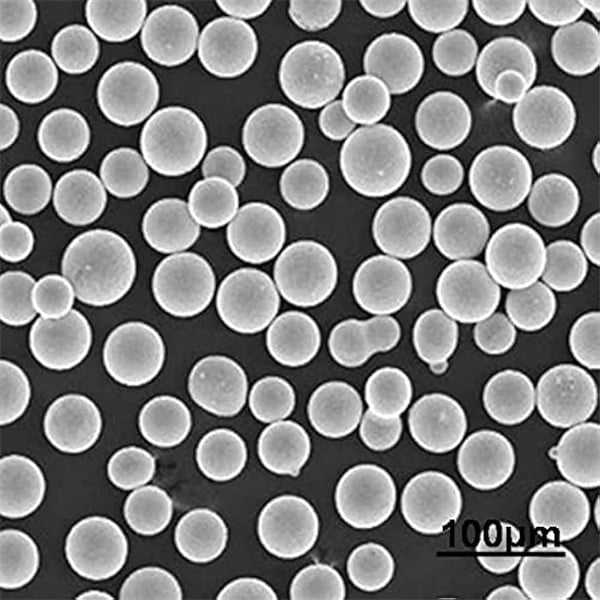
Conclusion
Monel 400 is a versatile and high-performing high-temperature alloy with a broad range of applications across various industries. Its unique combination of corrosion resistance, mechanical strength, and thermal stability makes it a popular choice for demanding environments, from marine applications to aerospace and chemical processing. While it may come at a higher cost compared to some other materials, its performance in harsh conditions often justifies the investment.
Whether you’re working on a marine project, an aerospace component, or any application requiring high strength and corrosion resistance, Monel 400 stands out as a reliable and effective material. As technology and manufacturing processes continue to evolve, the use of Monel 400 will likely remain crucial in maintaining the integrity and performance of critical systems and components.
FAQ
Here are some common questions and answers about Monel 400:
| Question | Answer |
|---|---|
| What is Monel 400 used for? | Monel 400 is used in applications requiring high strength and resistance to corrosion, such as marine environments, aerospace components, and chemical processing equipment. |
| How does Monel 400 compare to other alloys? | Compared to alloys like Inconel or Hastelloy, Monel 400 offers excellent corrosion resistance in marine and acidic environments but is less suited for extremely high temperatures. |
| Is Monel 400 expensive? | Yes, Monel 400 is generally more expensive than many other materials, including stainless steel, due to its specialized properties and high production costs. |
| Can Monel 400 be machined easily? | Monel 400 can be machined, but it requires specialized equipment and techniques due to its toughness. It is harder to machine compared to some other alloys. |
| What are the main advantages of Monel 400? | The main advantages include its high corrosion resistance, excellent strength, and thermal stability. It performs well in harsh environments, such as seawater and acidic conditions. |
| What are the limitations of Monel 400? | Limitations include its higher cost compared to some alternatives and its lower hardness relative to other high-temperature alloys. Additionally, machining can be challenging. |
| Where can I buy Monel 400? | Monel 400 is available from specialized metal suppliers and distributors. Some top suppliers include Special Metals Corporation, Haynes International, and Rolled Alloys. |
| What standards does Monel 400 conform to? | Monel 400 conforms to standards such as ASTM B127, ASTM B164, ASTM B165, and ASTM F96. These standards ensure the quality and performance of Monel 400 products. |
Share On
MET3DP Technology Co., LTD is a leading provider of additive manufacturing solutions headquartered in Qingdao, China. Our company specializes in 3D printing equipment and high-performance metal powders for industrial applications.
Inquiry to get best price and customized Solution for your business!
Related Articles
About Met3DP
Recent Update
Our Product
CONTACT US
Any questions? Send us message now! We’ll serve your request with a whole team after receiving your message.

Metal Powders for 3D Printing and Additive Manufacturing
COMPANY
PRODUCT
cONTACT INFO
- Qingdao City, Shandong, China
- [email protected]
- [email protected]
- +86 19116340731






